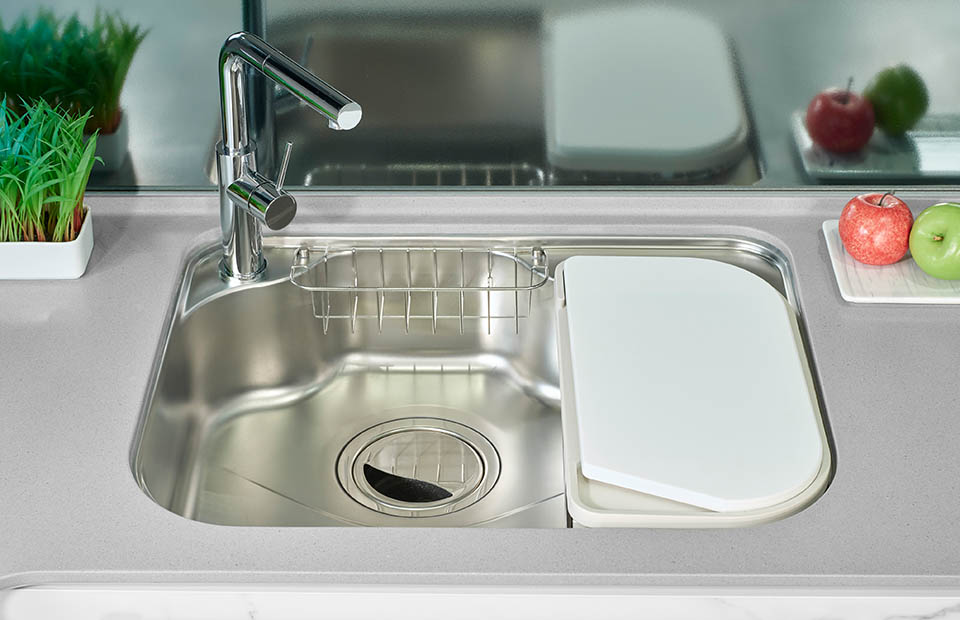-
Sink Materials
One of the perfect kitchen partners
Sink is an essential place for utensils washing and food preparation, available from single to double bowls. For a large worktop, it is suggested to install a double-bowl sink to separate the cleaning of kitchen utensils and food ingredients. User has to pay attention to the daily requirements and sink material selection when planning her own kitchen. To unify the overall kitchen design and ambiance, the sink can be applied the same materials of the worktop.
Besides, there is a wide range of sink accessories provided in the market with different functions, such as drain board, drain rack and cutting board. All are designed to fit perfectly with every sink. It is advised to pick suitable tools according to your needs - drying dishes and utensils, washing ingredients and maximizing worktop space. Some common types include:
1. Solid surface
Sink in a solid surface is highly decorative with a wide variety of color choices, achieving perfect integration between the sink and worktop. However, it gets scratches easily due to its slightly inferior hardness, heat resistance and wear resistance.
2. Quartz
With excellent hardness, scratch resistance and heat resistance, quartz sink can effectively prevent scratches and the situation of trapping dirt. In addition to its high impermeability and antibacterial feature, cooking fumes and water stains can be cleaned easily with longer product lifespan. Additional maintenance is not required to keep it bright and clean.
3. Granite
Granite is a natural stone. Each piece has its unique color and veining. With advantages of resistance in wear, scratch and heat, it is suitable for making a kitchen sink. Regular waxing is also necessary to prevent dirt from seeping into the joints and tiny holes of the stone.
4. Stainless steel
Stainless steel sink with a high gloss surface is another popular option. Apart from easy cleaning and maintenance, it can be made in various shapes and sizes to perform distinctive functions. Its durability depends on the thickness of the steel, so thinner materials are prone to dents, scratches or even rust.
Kitchen Style
Experience Distinctive Style at the Heart of Your Home








